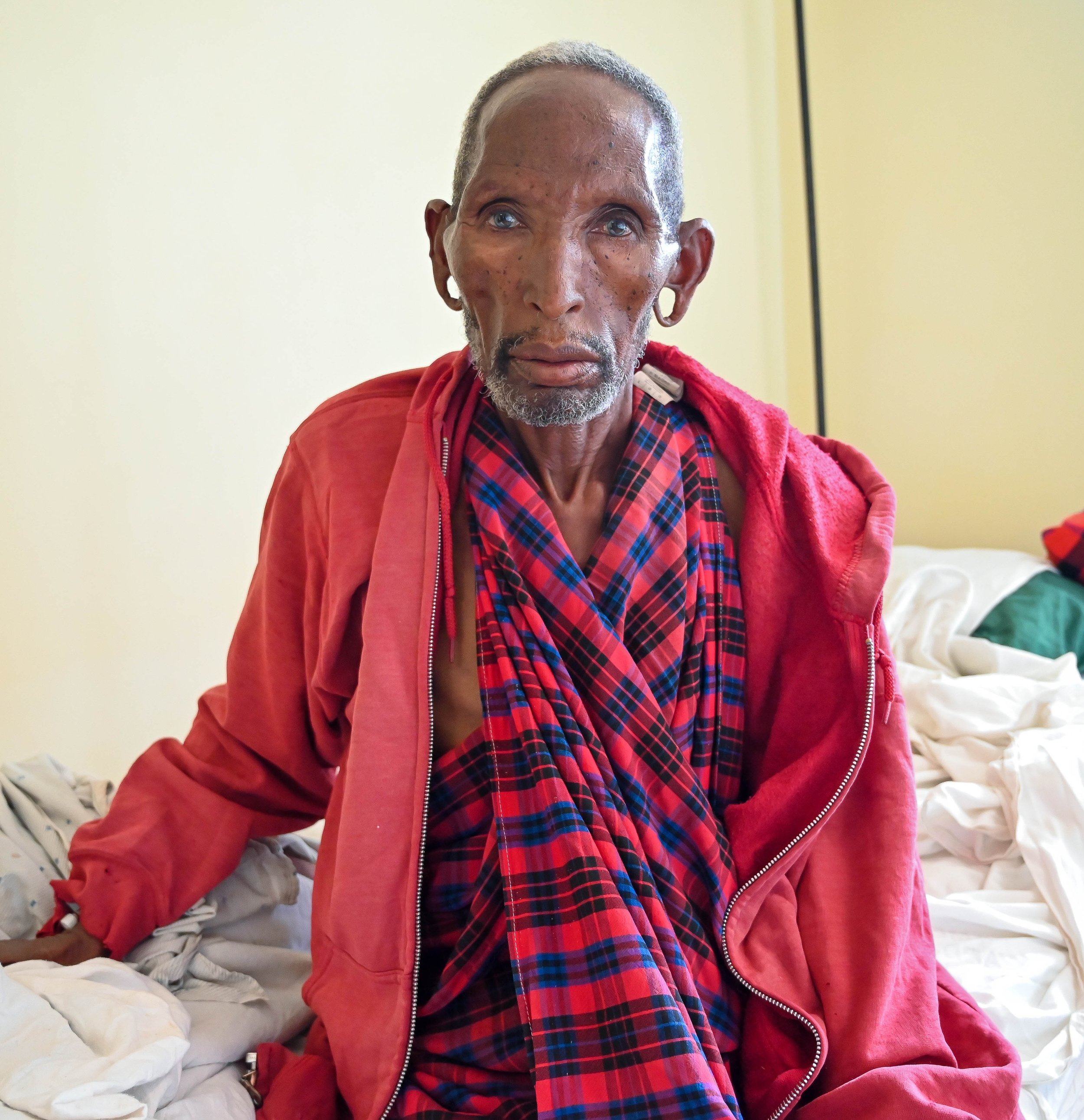Sankale (middle) poses with his dad (left) and FAME’s Operating Theater Supervisor, Moses Kikonya (right).
Sankale (left) and his father.
FAME, located in rural Tanzania, was established to provide quality healthcare services to the people living in its surrounding areas. Despite its remote location and limited resources, FAME has served its catchment area effectively by employing local people. This creates job opportunities for the villagers and a sense of ownership and responsibility towards the hospital. For this reason, FAME has prioritized recruiting staff from the local community whenever possible. As a result, FAME has a dedicated team of doctors, nurses and other healthcare workers committed to providing the best possible care to their neighbors, friends and family.
FAME staff from the local community deeply understand the local culture, traditions and language. This has made it easier for them to communicate with the patients and understand their healthcare needs. They also have a good rapport with the community and have built trust and confidence among the people.
FAME staff shares their positive experiences about the hospital with friends and family, encouraging them to seek medical care at FAME. Despite its growth, FAME never forgets its roots and 40 percent of its workforce comes from the community where we are based.
This week, we ran into a father and son duo at FAME's Outpatient Clinic (OPD). The son, Sankale*, was bringing his father for a three-week review after successful surgery and treatment at FAME.
“When Mzee [father] started getting sick, we were all very worried. We went to a local hospital that advised us to take him to Arusha, more than 220 miles away, as they claimed his condition was serious. That’s when I called Kikonya. He comes from our village and works at FAME. We trust him with our lives. He is our brother and son; we know he always tells us the truth as he is one of us! He asked me to bring Mzee to FAME for additional tests before deciding on the next action.”
The "Kikonya" Sankale referred to is Nurse Moses Kikonya, FAME's Operating Theater Supervisor, who has worked at FAME for three years.
“Sankale and I come from the same village in Loliondo, which borders Kenya to the north. He called me immediately after visiting a local clinic that referred them to Arusha and explained to me in detail the diagnosis they had been given. I advised them to come to FAME to run some tests before making the long trip. After investigations at FAME, we discovered that the original diagnosis was incorrect. We diagnosed Mzee with a condition easily fixable by surgery at FAME. After a successful surgery, Mzee is now fully recovered. Many people from Loliondo, not just from my village, know me well and about my work [Loliondo contains more than 40 villages]. They always call me to seek advice on health issues that need intervention. Today I received another call from home and directed the patient to FAME. People in my community are more likely to trust one of their own who works at a hospital than an outsider. The fact that I work at FAME creates a sense of familiarity and comfort, making them likely to trust my advice. I feel very honored to be in a position to help my community.”
Mzee (left) explains to Kikonya (right) how he is no longer in pain and his hands work just as they did before!
FAME hires staff from all different tribes in our catchment area. The Maasai are our largest growing patient population and it has been important that we ensure we have staff that represents our entire patient population. As a historically underrepresented group in Tanzania, many Maasai patients have expressed an appreciation for how FAME treats all its patients equally, no matter where they come from.
Overall, the benefits of employing people from the local community in healthcare cannot be overstated. FAME's success is a testament to the fact that by investing in local communities, it's possible to build sustainable healthcare systems that cater to the needs of the people. FAME remains a symbol of hope and progress for the people in our catchment area and a shining example of how a small rural hospital can make a big difference in people's lives.
*The patients’ names have been changed to protect their privacy and permission was secured to share their story. The quotes have been translated from Swahili to English.


















